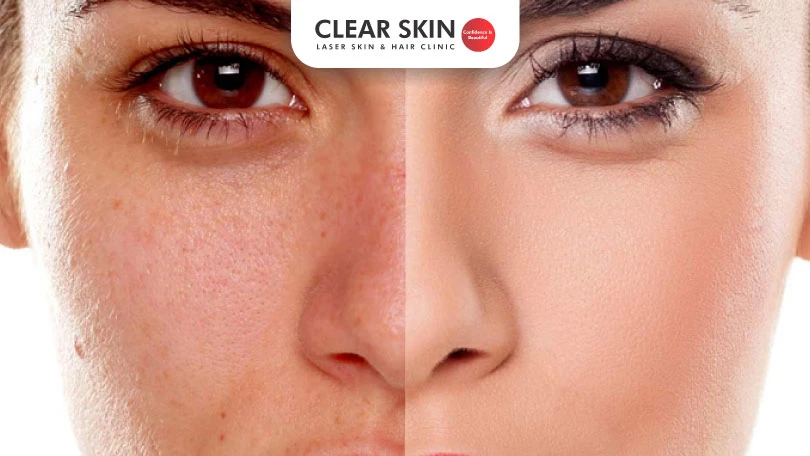Reviewed By:
Updated on: 8th April, 2024
Pigmentation issues can vary widely, affecting different areas of the face and body and presenting in various forms, such as melasma, photopigmentation, freckles, and post-acne marks. Understanding the specifics of your pigmentation problem, including its location, duration, and any previous treatments, is crucial for effective treatment. Our dermatologists in Pune specialize in diagnosing and treating various pigmentation concerns using advanced techniques like chemical peels and laser therapies.

Table Of Content
-
How to treat Skin Pigmentation?
- Conclusion
How to treat Skin Pigmentation?
Hello Mam, Thank you for your valuable inquiry. As per your question, you have some pigmentation problem. In order to guide you in a better way, we need to understand your problem in detail. Like, which area on body or face is involved, whether it is bilateral (both sides) or unilateral (one side), have you been to any treatment earlier, history of the problem, are you using sunscreen, do you have a family history of the same type of pigmentation etc. Pigmentation is a general category.
There are various types of skin pigmentation
- Melasma
- Photopigmentation
- Post acne pigmentation
- Freckles
- Lentigines
- Post-inflammatory hyperpigmentation after eczema
- Any type of skin infection
Treatment required to treat pigmentation depends upon the which type of pigmentation problem you have & which area is involved. Treatment outcome depends upon the type of pigmentation is getting treated. For eg, Limitations in treating melasma, whereas post acne pigmentation can go very effectively with various treatments such as chemical peels, Fractional q switched Nd YAG Laser treatments. Pigmentation can be epidermal or at dermal level. Chemical peels can take care of epidermal pigmentation of the skin, whereas dermal pigmentation may need to take help of laser, oral & topical medications. Multiple sessions are required to get better results.
Important Resource
All you need to know about chemical peel treatment
Q switch laser for pigmentation
Treatment of pigmentation is individualized. So it’s better to consult a board-certified dermatologist to diagnose your pigmentation problem so, as to know which type of pigmentation do you have. In consultation, they can analyze your skin type, can judge the level of skin pigmentation, can take details history of your problem & any past treatment if any & according to that, can guide best possible solution for your problem. They can also guide you about some oral & topical medications required if any to reduce your pigmentation. You can also come to know about your daily skin care regime in order to get healthy, spotless, youthful skin which you are in a dream for.
Hope we have answered all your queries, Still, if you have more queries, feel free to post your questions in detail manner, will be happy to answer those as early as possible.
Conclusion
Popular Q&As
Learn how glycolic acid and isotretinoin can help treat acne scars. Dark lips can be caused by sun exposure, dehydration, smoking, or lifestyle factors. Understand the reasons and find expert solutions at Clear Skin Clinic, Pune. Diet plays a good role to decrease melanin in your body.
Tips for Fair and Glowing Skin for Oily Skin Types
Why are my lips dark?
How to Reduce Melanin Production in Skin Naturally?
We Got Your Back! Ask Us Anything On Your Mind!
Reach out to us on
Didn’t Find What You Were Looking?
Please Contact Us.
We are committed not only to treating you, but also educating you.

